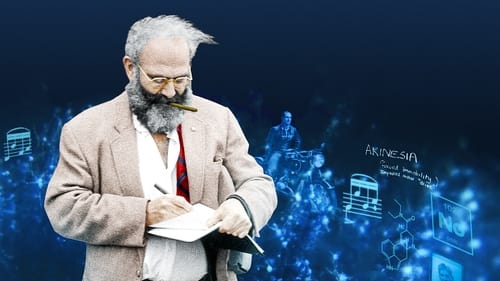
Self (archive footage)
2015년 1월, 시한부 판정을 받고 올리버 색스는 “나의 생애”란 에세이를 뉴욕 타임즈에 기고하고, 삶의 마지막 순간을 담은 다큐멘터리를 제작하게 된다. 의학계의 시인, “아내를 모자로 착각한 남자”를 비롯한 베스트셀러 작가, 인간의 뇌라는 경이로운 우주의 탐험가 등 수많은 수식어들 사이에서 ‘이 아름다운 행성에 태어나 지각 있는 존재로 살아간 것에 대한 기쁨과 감사함’으로 삶의 마지막 순간까지도 눈물이 아닌 따스함을 남기는 올리버 색스의 경이로운 삶의 여정이 펼쳐진다.

Five million Americans suffer from Alzheimer's disease and dementia—many of them alone in nursing homes. A man with a simple idea discovers that songs embedded deep in memory can ease pain and awaken these fading minds. Joy and life are resuscitated, and our cultural fears over aging are confronted.
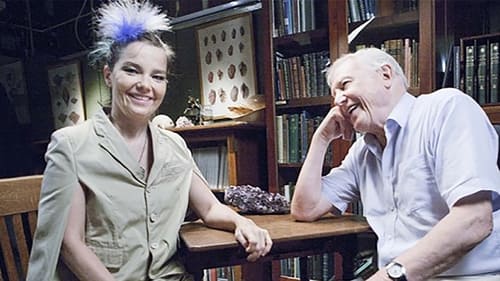
Self
Award-winning musician Björk and legendary broadcaster and naturalist Sir David Attenborough have admired each other's work for years but this is the first time they have discussed their mutual love of music and the natural world on screen. In this remarkable documentary, Björk explores our unique relationship with music and discovers how technology might transform the way we engage with it in the future.

Self

Himself - Professor of Neurology and Author
D Carleton Gajdusek won the Nobel Prize for the discovery of Prions - the particles that would emerge as the cause of Mad Cow disease - while working with a cannibal tribe on New Guinea. He was a star of the scientific world. Over his years working amongst the tribes of the South Seas, he adopted 57 kids, bringing them to a new life in Washington DC. His adoptions were hailed as wonderful fatherly beneficence. But, at the height of his career, rumours began to spread he was a paedophile. Gajdusek would argue that if sex with children was okay in their own cultures, he wasn't wrong to join in. How could a great mind like Gajdusek's lose insight so totally, and why would the scientific community to which he was a hero be so quick to leap to his defence and dismiss the allegations? (Storyville)

Himself
Alan Yentob talks to Dr. Oliver Sacks about his latest book 'Musicophila: Tales of Music and the Brain' which deals with the power of music and how it helps those with extreme neurological conditions, and meets some extraordinary people overcame their conditions with music.
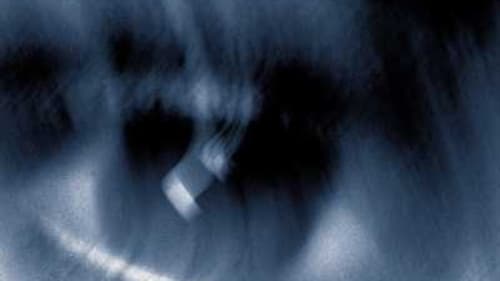
Self
Nineteen people with differing degrees of visual impairment – from mild nearsightedness to total blindness – discuss how they see themselves, how they see others and how they perceive the world. Unusual images, of burning trees or empty deserts, link the interviews, which vary from deep to funny to poetic.
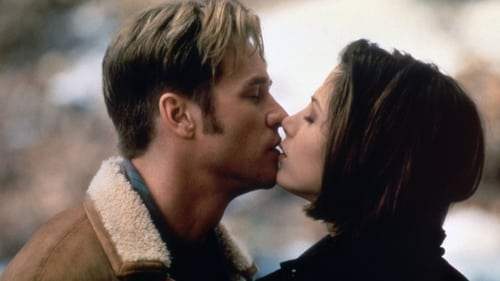
Story
에이미(Amy Benic: 미라 소르비노 분)는 건축디자이너로 바쁘게 살아가는 뉴요커이다. 그녀는 스파휴양지로 휴가를 떠나는데 그곳에서 안 마사 버질(Virgil Adamson: 발 킬머 분)을 만난다. 그녀의 마음까지 따뜻하게 어루만져주는 그의 손길에 그녀는 점점 호감을 느끼게 되지만 나중에 그가 시각장애인이라는 것을 알게 된다. 그러나 이미 그 때는 사랑의 감정이 싹튼 후였다. 주위사람들의 우려와 만류에도 불구하고 그들은 깊은 사랑에 빠진다. 그의 시력을 되찾아 주기 위해 미국에서 가장 유능한 안과 의사를 찾아가는 에이미. 그러나 과거에 여러 번에 걸친 수술의 실패로 좌절을 경험한 버질은 그녀에게 있는 그대로의 자신의 모습을 사랑해 달라고 부탁한다. 그림자처럼 돌봐주는 그의 누나 제니(Jennie Anderson: 켈리 멕길리스분)도 에이미의 노력에 오히려 냉담한 반응을 보인다. 그러나 결국 버질은 그녀가 떠날까봐 수술을 받기 위해 뉴욕으로 건너가는데. 수술 후 버질은 시력을 되찾기는 하지만 눈에서 전달하는 영상을 뇌에서 받아들이지 못해 에이미와의 일상생활에 적응을 못하고 사소한 다툼도 하게 된다. 그러나 차츰 익숙해지면서 에이미와의 오해도 풀리고 아름다운 세상의 모습들을 바라보며 그 어느 때보다 행복을 느끼게 되는데. ..

One of the most interesting shows ever aired on public television was Wim Kayzer's interviews with six leading intellectuals who represented both the mainstream academic (Stephen J. Gould, Freeman Dyson and Stephen Toulmin) and more or less, as it were, "eccentric" outside the box groundbreaking intellectuals (Oliver Sacks and Rupert Sheldrake). Kayzer interviews each of them (and philosopher Daniel Dennett) individually and then has the entire group sit in a kind of round-table seminar that he moderates and lets the ideas fly.
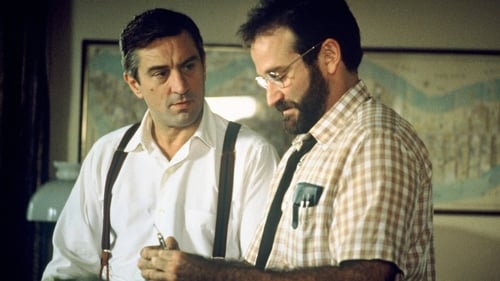
Book
어릴 때 뇌염을 앓은 레너드(Leonard Lowe: 로버트 드니로 분)는 11살 때부터 손이 떨리는 증세가 나타나고 글도 쓰지 못하게 되자 학교를 그만두고 병원에서 살게 된다. 정신은 잠들고 근육은 강직된 후기뇌염 기면성 환자가 된 것. 레너드가 수십년간 수용돼 있는 배인브리지 병원에 세이어 박사(Dr. Malcolm Sayer: 로빈 윌리암스 분)가 부임해 온다. 세이어 박사는 이들이 공을 받아내는 것을 보고 내면은 살아있다고 확신한다. 그리고는 그들의 정신을 일깨울 수 있는 것을 찾는다. 환자의 이름을 부르거나 음악을 들려주거나 인간적인 접촉을 갖는 것 등. 마침 그때 파킨슨병 환자에게 엘도파라는 약이 효과가 있다는 발표를 듣고 세이어는 이들의 증세가 그 병의 증세와 비슷하다는 점에서 힌트를 얻어 약물치료를 할 생각을 하게 된다. 부작용을 염려한 병원측에서는 레너드에게만 투약해보라고 허락해 준다. 엘도파를 투약받은 레너드에게 기적이 일어난다. 깨어나 말도 하고 글도 읽고 맘대로 움직일 수 있게 된 것. 삶의 환희를 맛본 레너드는 세이어 박사에게 일상적인 삶과 사랑의 소중함을 역설하는데. {세이어 박사와 그의 동료들은 뇌염 후유증을 앓는 환자들을 치료를 위한 약물 투여를 계속하고 있다. 레너드와 다른 환자들은 일시적으로 깨어났지만, 1969년 그 해 여름만큼 놀라운 기적만큼은 다시는 일어나지 않았다. 세이어 박사는 브롱크스에 있는 만성질환자 병원에서 진료를 계속하고 있다.}
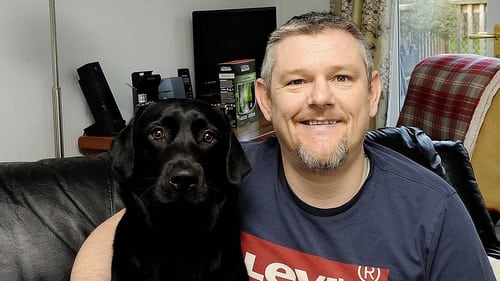
Oliver Sacks
John's Not Mad is a QED documentary made by the BBC in 1989. It was ranked, in a British public poll, as one of the 50 Greatest Documentaries. The film shadows John Davidson, a 15-year-old from Galashiels in Scotland, who had severe Tourette syndrome. John's life was explored in terms of his family and the close-knit community around him, and how they all coped with a misunderstood condition.

Novel
Opera singer and professor Dr P is examined both in a clinic and in his home, as he suffers from a degeneration of the occipital lobe that allows him to see details but not wholes.

Himself
Opera singer and professor Dr P is examined both in a clinic and in his home, as he suffers from a degeneration of the occipital lobe that allows him to see details but not wholes.










